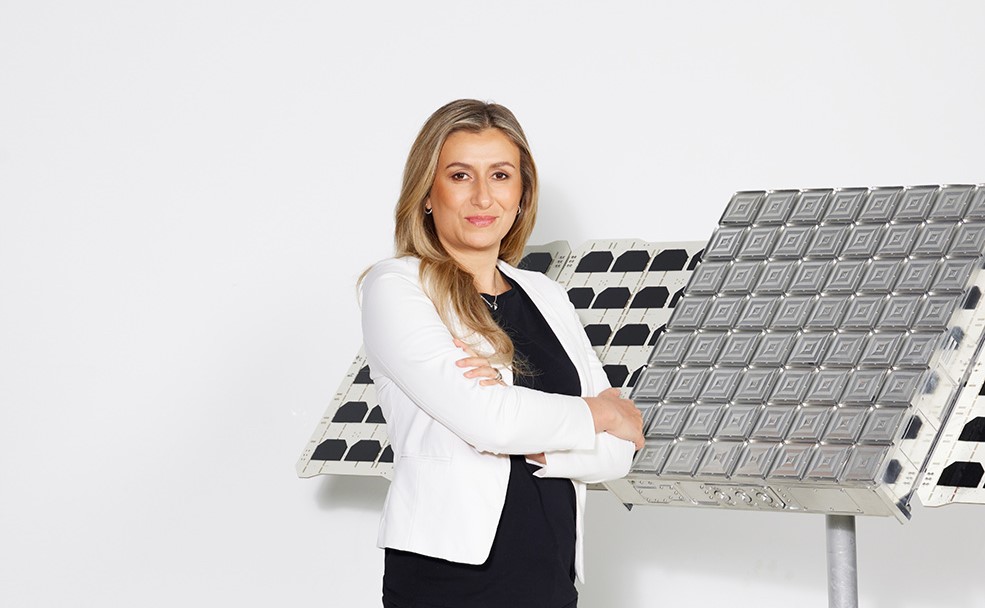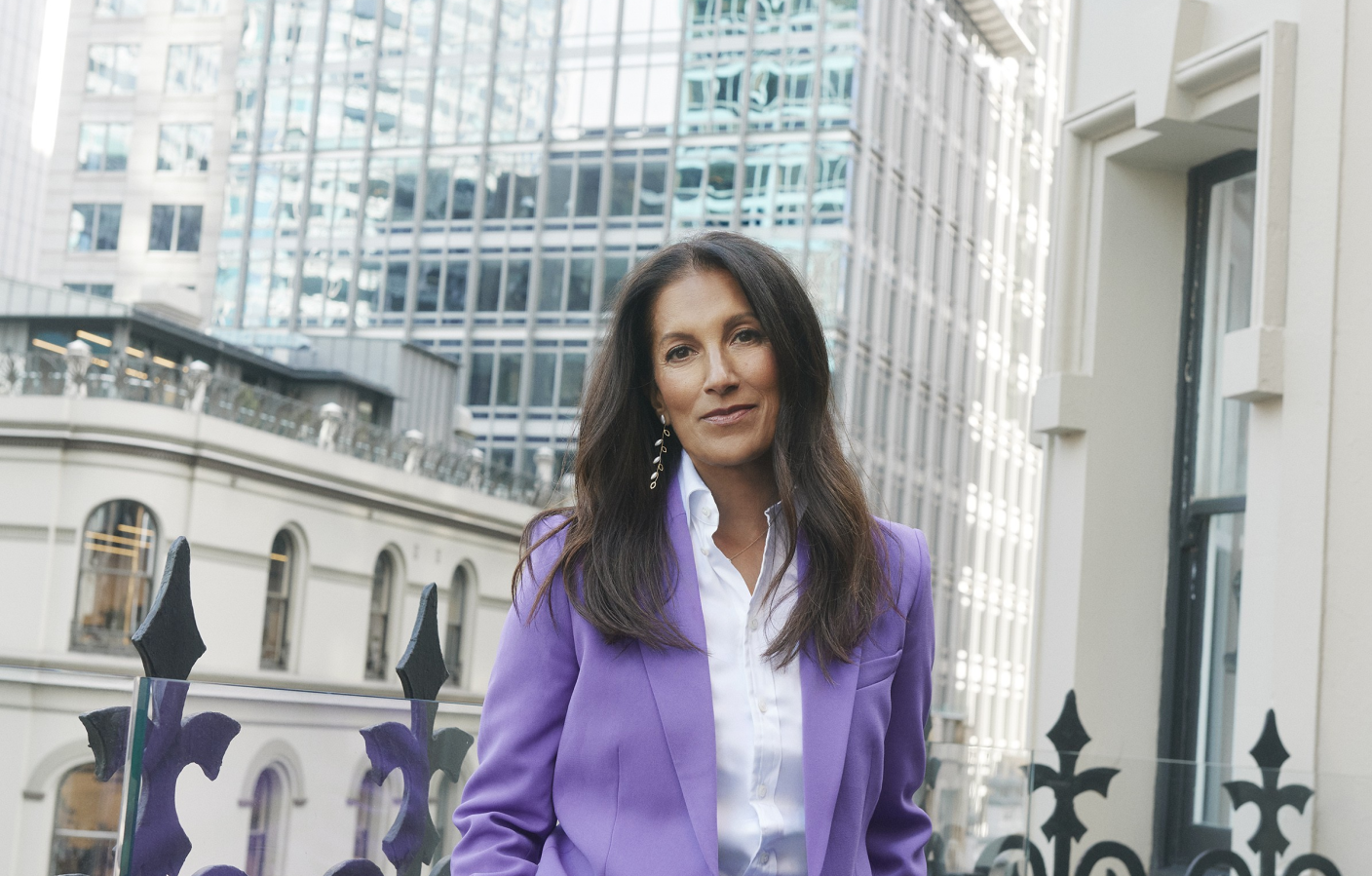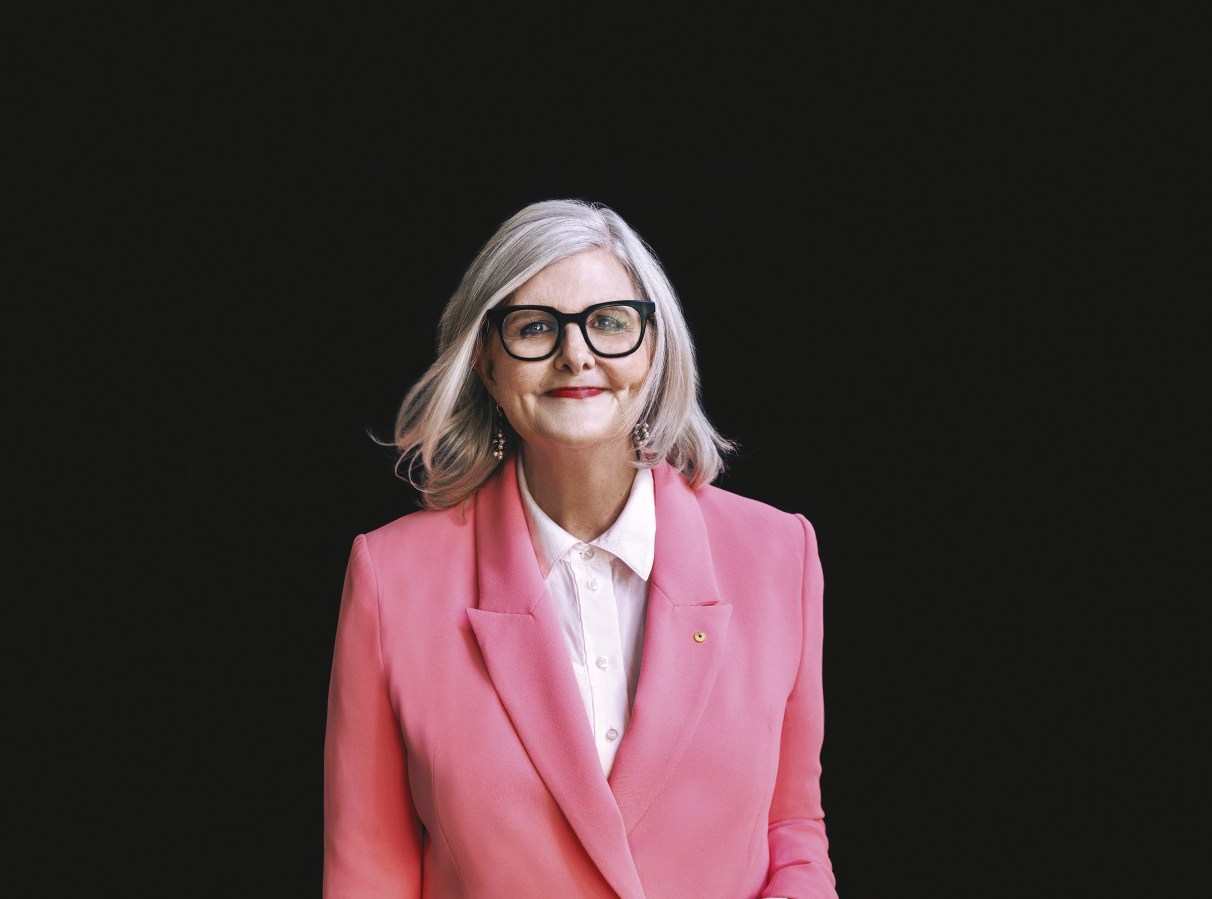Siobhan Savage is at the helm of what she claims to be the world’s first ethical talent AI company, Reejig. As the AI industry sits on a regulatory precipice, she says Reejig, whose mission is to have zero wasted talent, is poised to grow exponentially.
This article is featured in Issue 11 of Forbes Australia. Tap here to secure your copy.
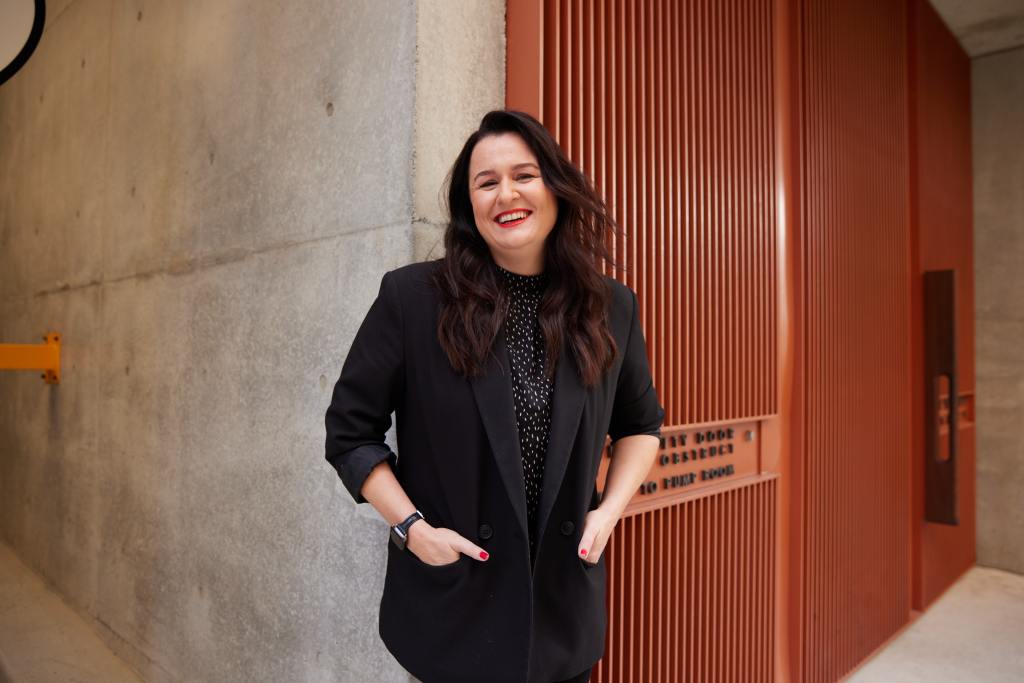
Sam Altman, co-founder and CEO of OpenAI, might be the hero of the moment, but Reejig co-founder Siobhan Savage says it won’t be long before the tide turns. When generative artificial intelligence, or GenAI, starts coming for jobs, he may well become somewhat less popular.
“If the world is the way I think it is, we’re going to see a really big skills crisis,” Savage says. “Companies are going to move towards bringing in AI, and it’s going to have a severe impact on a lot of people.”
Savage, a workforce strategist by trade, launched the workforce intelligence platform Reejig in 2019 after about a year of intense research and development into how AI could lead to what she calls ‘zero wasted potential’ in the workforce. Today, that’s Reejig’s entire mission – one Savage achieves using a proprietary ethical AI algorithm that recommends candidates for gigs that have been independently audited to ensure there’s no bias.
The five-year-old start-up has raised $40 million in funding from investors like Skip Capital, Airtree and Salesforce. Still, Savage says that as the AI industry booms, the company is on the precipice of exponential growth.
“The first couple of years of building this company was about trying to find product-market fit and getting clear on the problems that customers have. Now, it feels like we’re in this new chapter, at the start of something really big, before the market goes crazy.”
According to Bloomberg, the generative AI market is poised to become a US$1.3 trillion market by 2032. The global talent acquisition tech and services market is also surging at a compound annual growth rate (CAGR) of 6.3% to reach nearly US$300 billion by 2030. Savage’s Reejig sits somewhere in those two categories but also at the forefront of a new one: workforce transformation.
“The category for our space only got called by Gartner last year. It’s workforce transformation. That shows you how new this is – we’re really early in this journey,” Savage says.
“We are changing from a static, job-to-job workforce to new forms of employment, like gig workers, flex-consultants or digital workers, and we need to be prepared.”
The idea for Reejig came to Savage during maternity leave from her six-year stint as head of workforce strategy at Canadian consulting firm WSP.
For a start-up to be independently audited when nobody’s asked us to is nuts. And we have to do it every year worldwide, costing us millions. But this is how AI will come to life because people have to trust it.
Siobhan Savage, co-founder, Reejig
“We had no visibility into any of our people. We didn’t know who they were and couldn’t move them around. People don’t update their internal company profiles, and that was a huge blocker for anything strategic, like succession planning, promotions or rescaling.
“It became really painful and stressful, and it felt like such wasted potential, for us to not know who our people were in our business and not be able to move people in good times or bad.”
She went on maternity leave in February 2018. By May, she had sketched a rough plan for Reejig, and by August, she had quit her job. She went to University of Technology Sydney Startups in September that year and pitched her idea to a panel of judges, including Sally-Ann Williams, who was from Google Australia. She took out first place for what was then called Vouch – a diversity recruitment referral system to help companies find top talent and remove unconscious bias in the process.
“I’ve never told anybody this,” Savage says. “But that was my first attempt at going into the start up world and trying to figure out if this was possible. I mean, I’m a corporate person, right? I’m HR corporate. For someone like me, transitioning to the start-up world is pretty scary. How do you access that network? Who do you hang around with?”
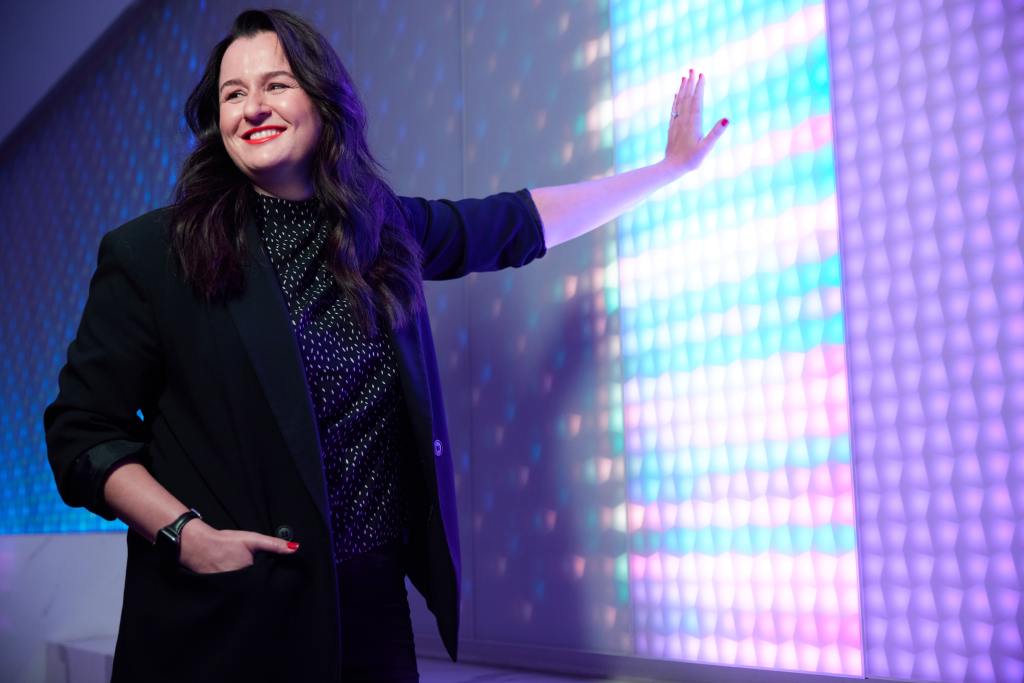
Reejig works by gaining visibility over a company’s workforce, any potential roles and upcoming projects, and trying to marry the two. It’s entirely powered by machine learning, spearheaded by Shujia Zhang, who has a PhD in machine learning and was previously the chief data officer at Safety Culture.
It uses AI to pull staff profiles from company databases, then scrapes publicly available information (like LinkedIn) to build them out. Employees can then browse and apply for internal opportunities via Reejig’s opportunity marketplace.
“Employees often leave companies because they don’t know what opportunities exist for them within their company today,” Savage says. “There are always short-term assignments available, so what we are doing is serving up opportunity and giving our customers access.”
However, the big drawcard in Reejig’s technology is its ethical AI algorithm, which Savage says is world-first. Its AI has been independently audited to ensure when it recommends candidates for jobs, it hasn’t been impacted by bias.
“AI is learning from all the decisions you’ve made before,” she says. “Let’s imagine you’re a company that’s traditionally hired middle-aged, white guys. If you train an algorithm on that, you will inherently make more bad decisions. Reejig has ensured we’ve removed any possibility of that happening.”
Having its technology audited was crucial to Reejig’s success and Savage’s ethos.
“It put a lot of pressure on us to do that. For a start-up to be independently audited when nobody’s asked us to is nuts. And we have to do it every year worldwide, costing us millions. But this is how AI will come to life because people have to trust it.”
Savage is also confident it’s a savvy business move. She predicts that AI regulation will appear sooner than we think, just like the EU and UK’s General Data Protection Regulation (GDPR) came for Australia. Having it under their belt already, she believes, makes Reejig a compelling choice.
I want to be clear that it’s not about automating humans out of the loop.
Siobhan Savage, co-founder, Reejig
And her investors agree. Elicia McDonald, partner at Airtree, is confident in Reejig’s ability to navigate changing market conditions.
“As we live through the AI platform shift, Reejig’s platform is well-positioned to handle the human impact of structural shifts caused by AI,” McDonald says.
“The enterprise landscape is intricate, requiring patience and foresight. Not everyone can navigate this terrain, but Reejig is well-placed to overcome any setbacks, and the upside opportunities are vast, especially as they continue to close deals with global giants.”
Another feature – one Savage says puts Reejig at the forefront of the workforce transformation industry – is its ability to see where a company’s skills lie compared to how much the market is changing. It can then identify the potential skills gaps in the company and how to prepare for them by suggesting ways for the business to upskill staff.
Reejig takes its own medicine, too. The company scanned its own workforce to find out what work was actually getting done and where it could potentially look at automation. It found its go-to-market division (everything from sales to marketing and content creation) held the highest automation potential. So, it employed 51 digital workers to do the grunt work and saved itself $1.4 million a month.
“I want to be clear that it’s not about automating humans out of the loop,” she says. “This is about freeing up my team to work on stuff that’s actually really high-value, that needs creative and critical thinking. But the other stuff – the stuff that takes 80% of their time because it’s long and repetitive, how do we find a way to ensure they don’t have to do that? That’s been the focus.”
As companies move towards removing staff from roles that could be automated by AI, Savage wants business leaders to ensure they’re placing those staff members into meaningful work. “It’s about making sure no one’s out of work and no one is left behind.”
Savage says the company’s next play would be its Series B, but she’s not in a hurry to give away equity. The company operates in 66 countries worldwide, and Savage says the next phase of the business is about accelerating growth.
“The next 12 months are focused on our global markets. Australia is a lot quieter right now, and the US is getting busy again, which is exciting. After that, we’re looking at helping our customers make bold decisions about how they design and scale their workforce in a responsible way that creates zero wasted potential for everybody.”
Are you – or is someone you know – creating the next Afterpay or Canva? Nominations are open for Forbes Australia’s first 30 under 30 list. Entries close midnight, July 15, 2024.
Look back on the week that was with hand-picked articles from Australia and around the world. Sign up to the Forbes Australia newsletter here or become a member here.

